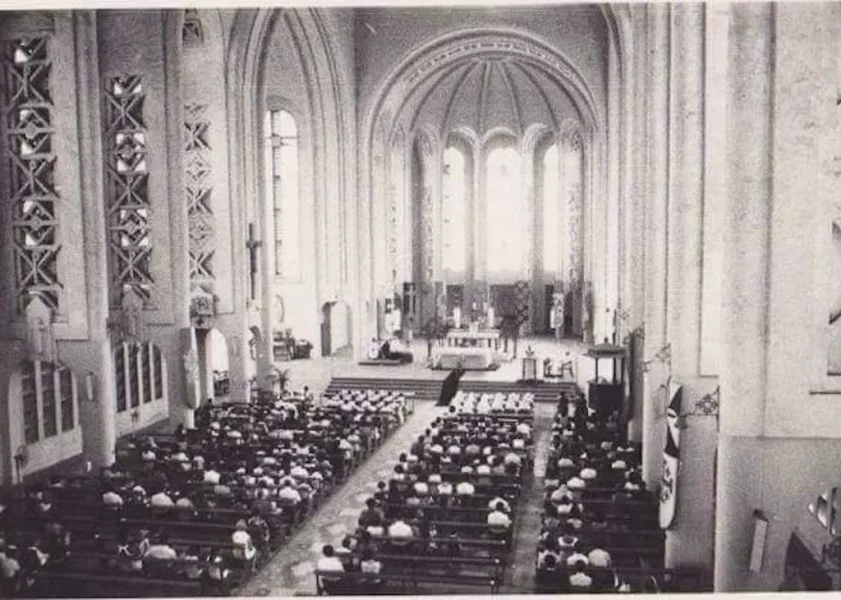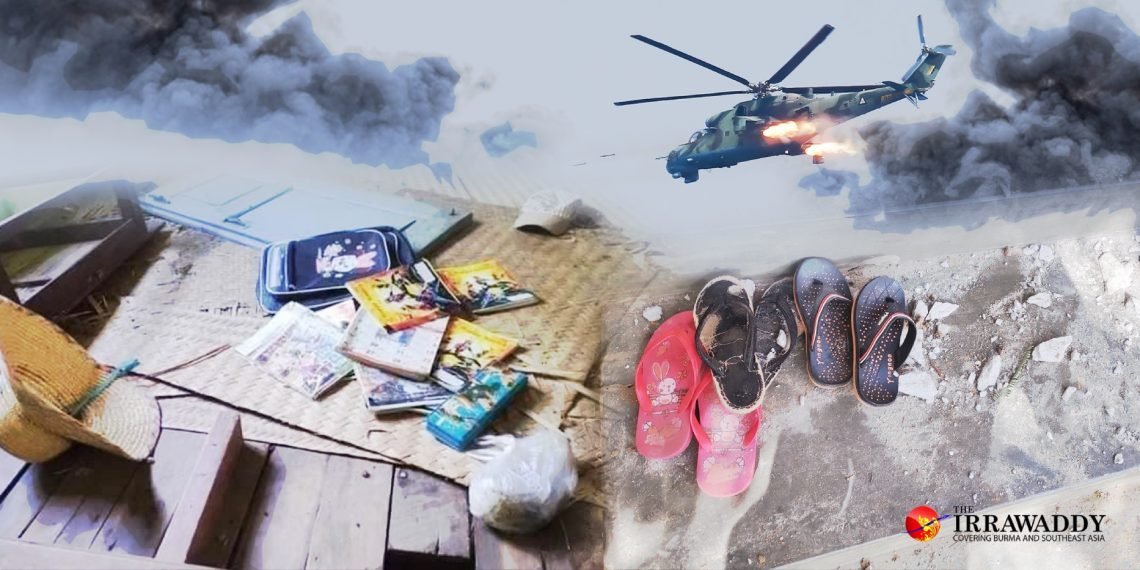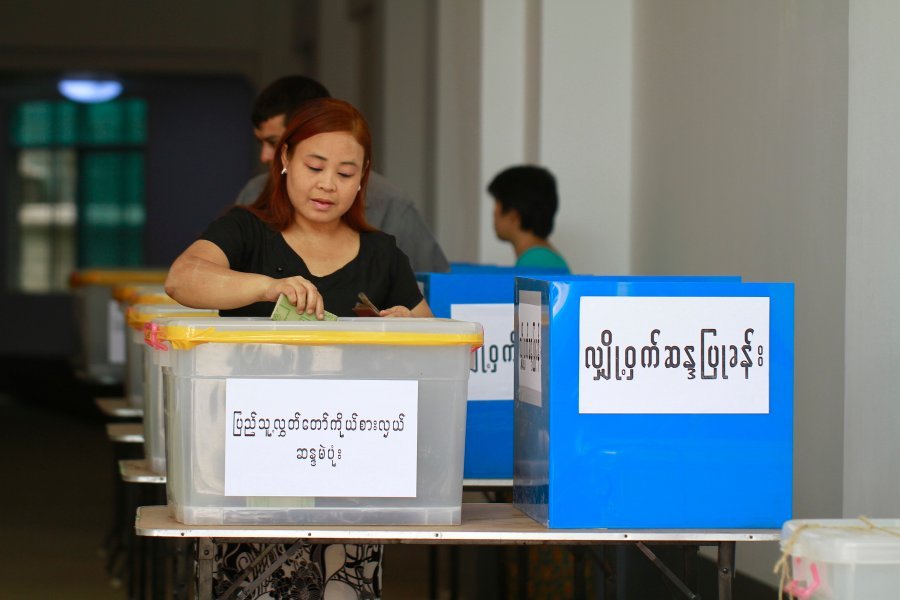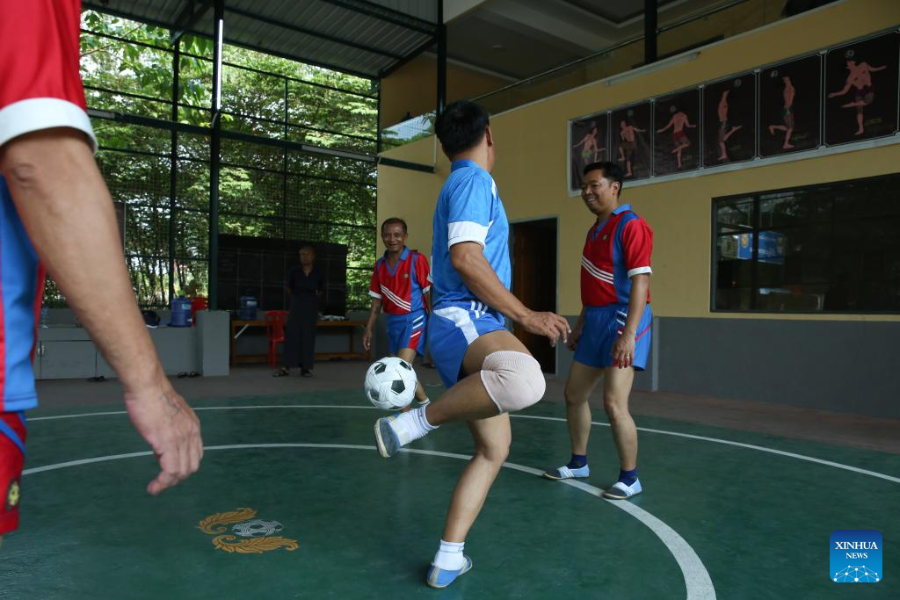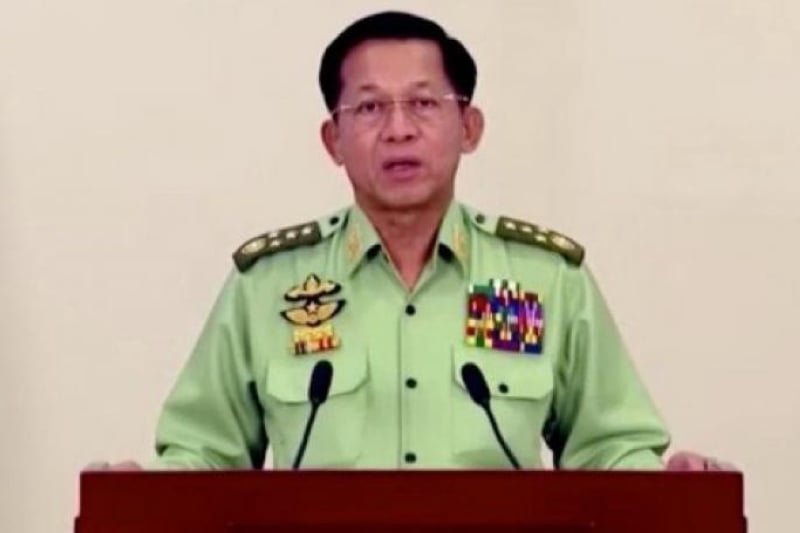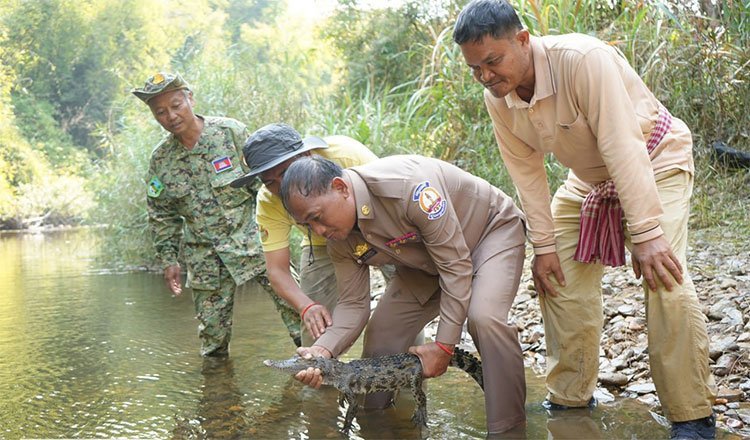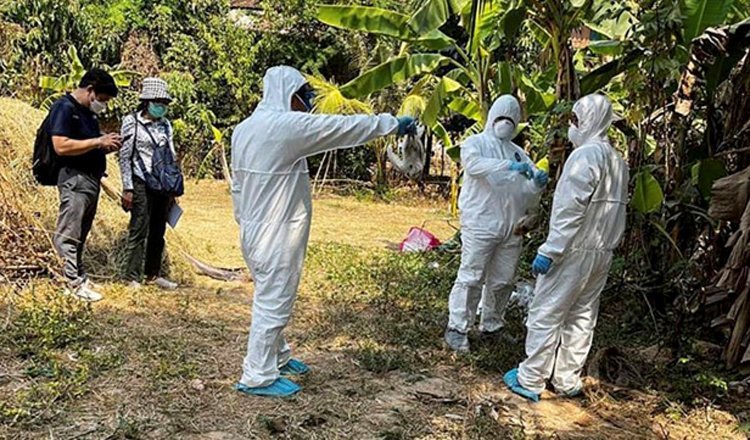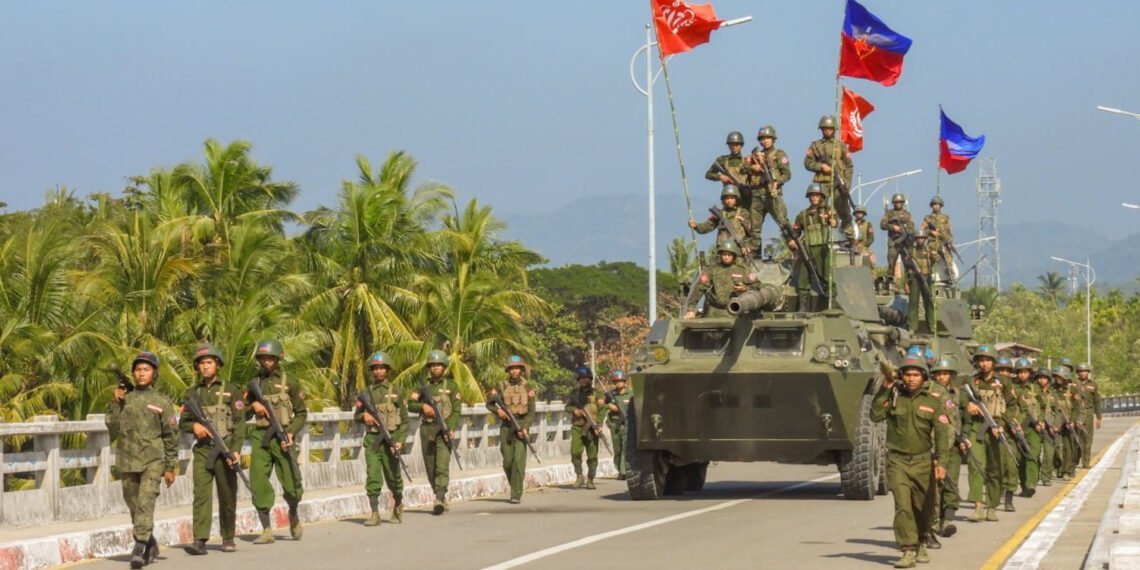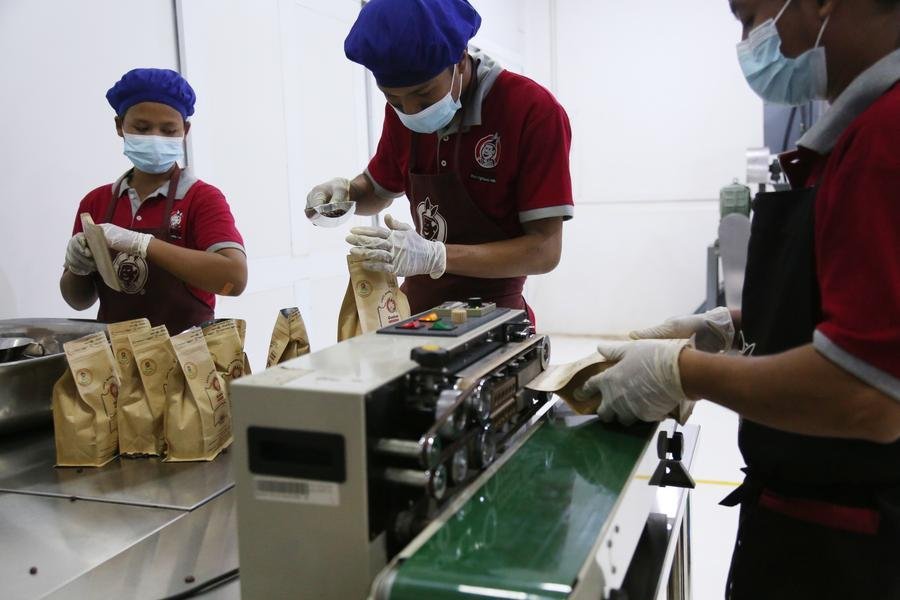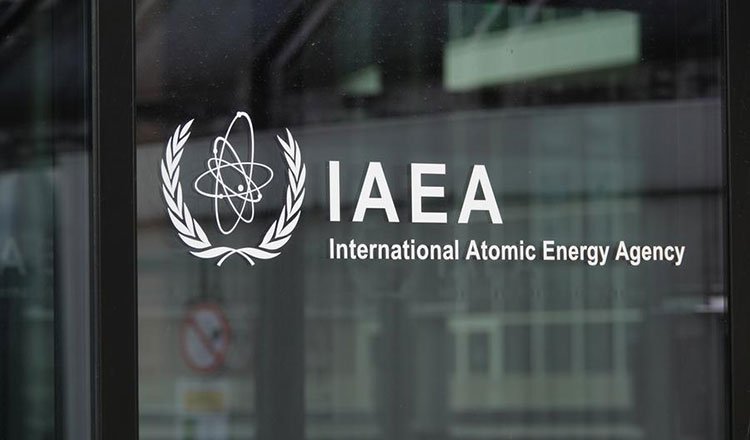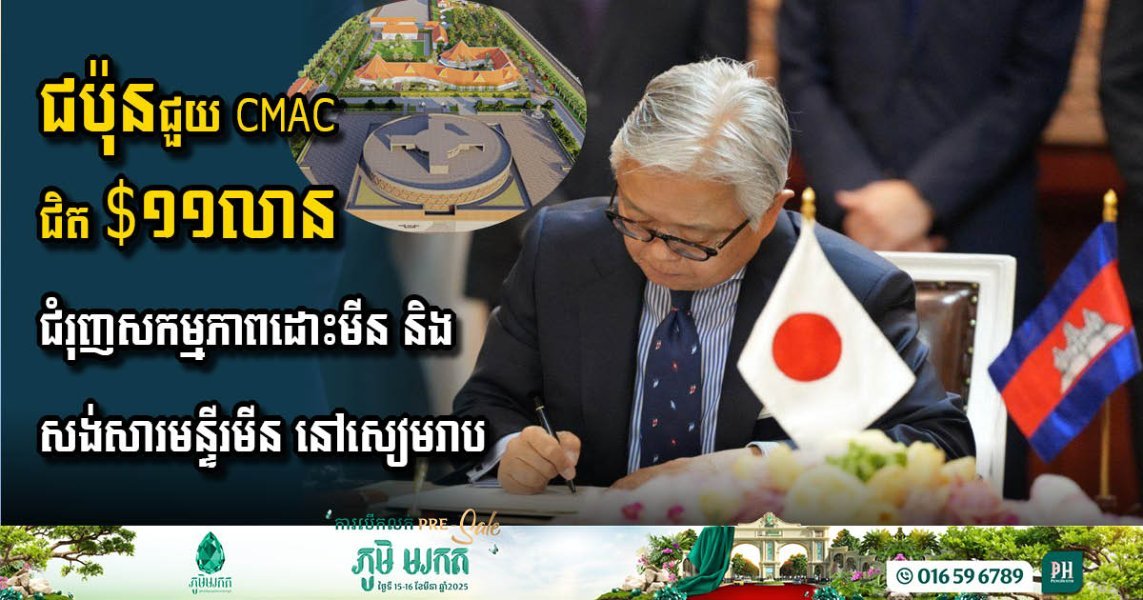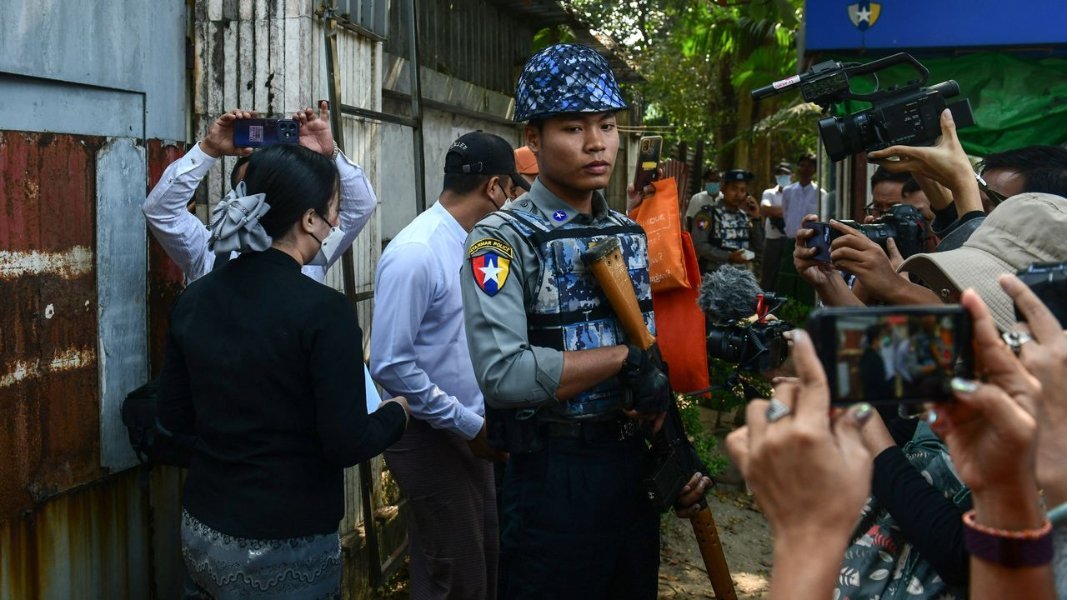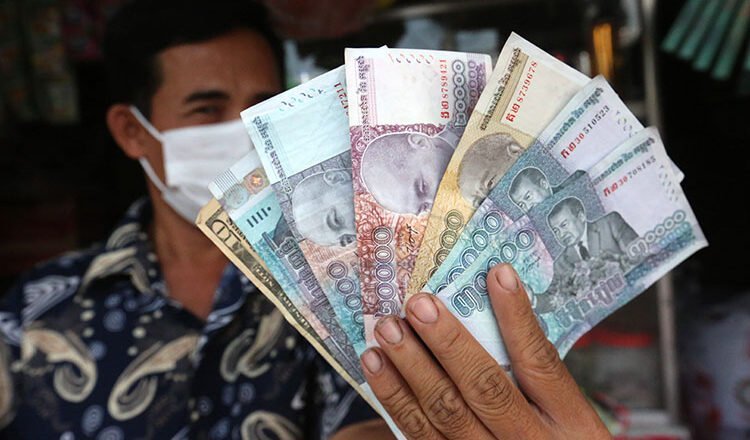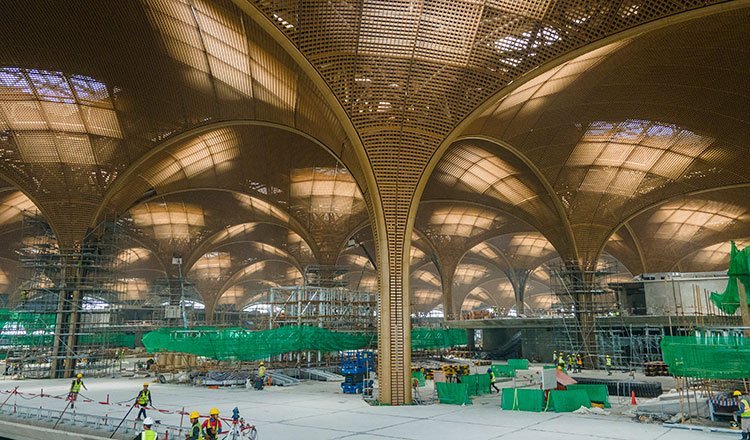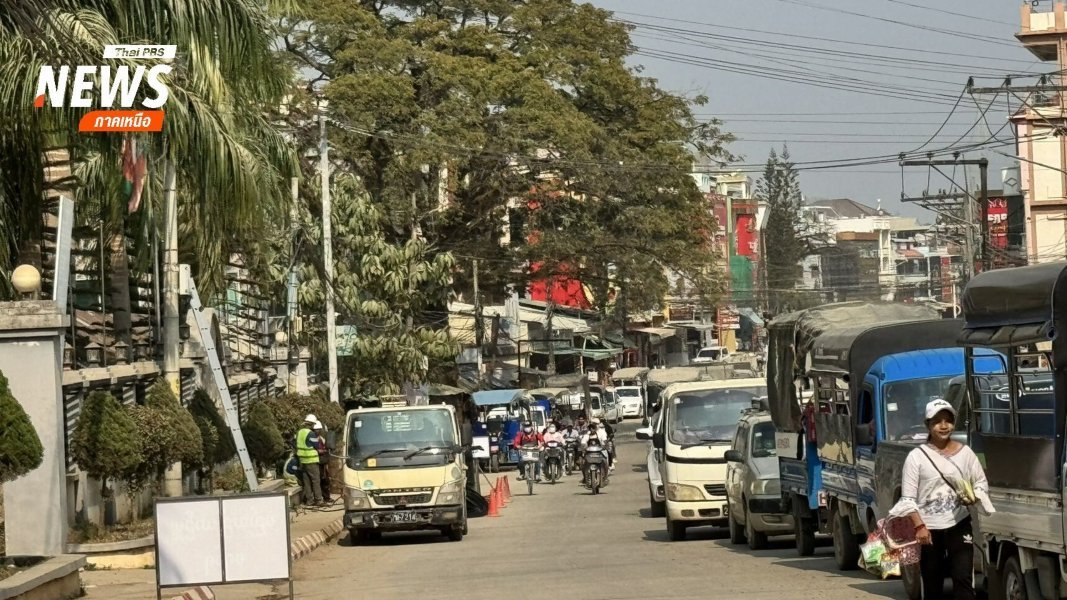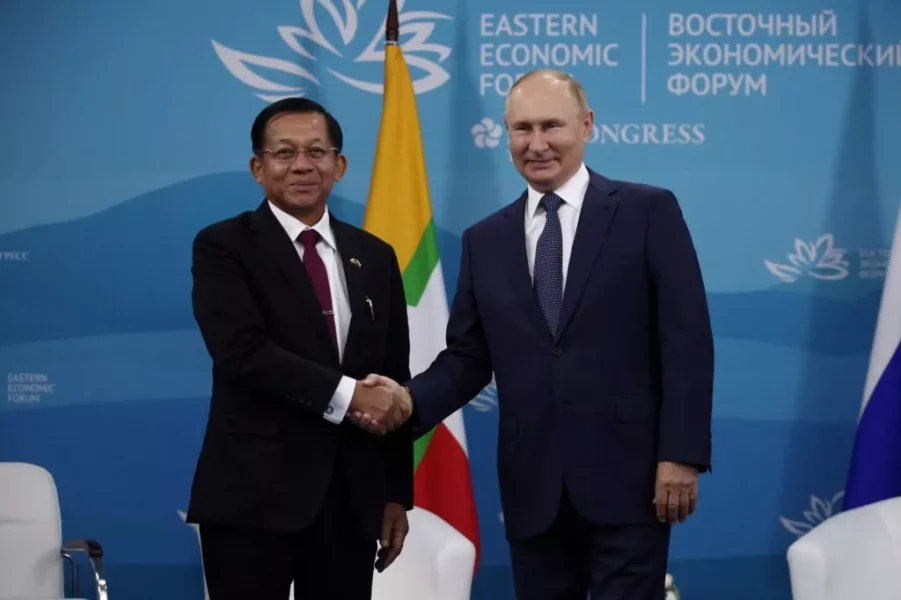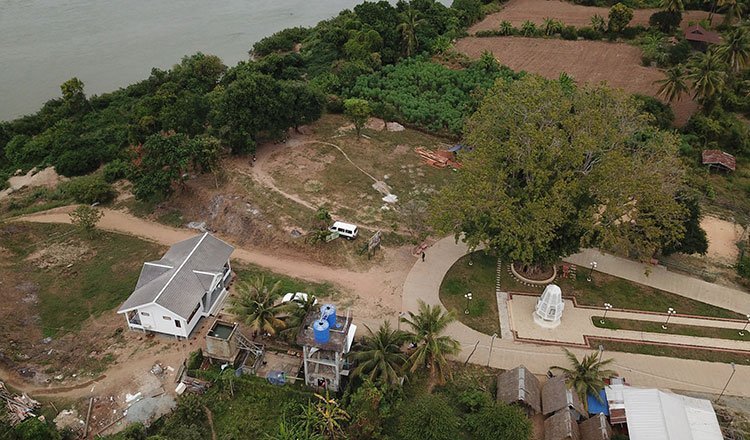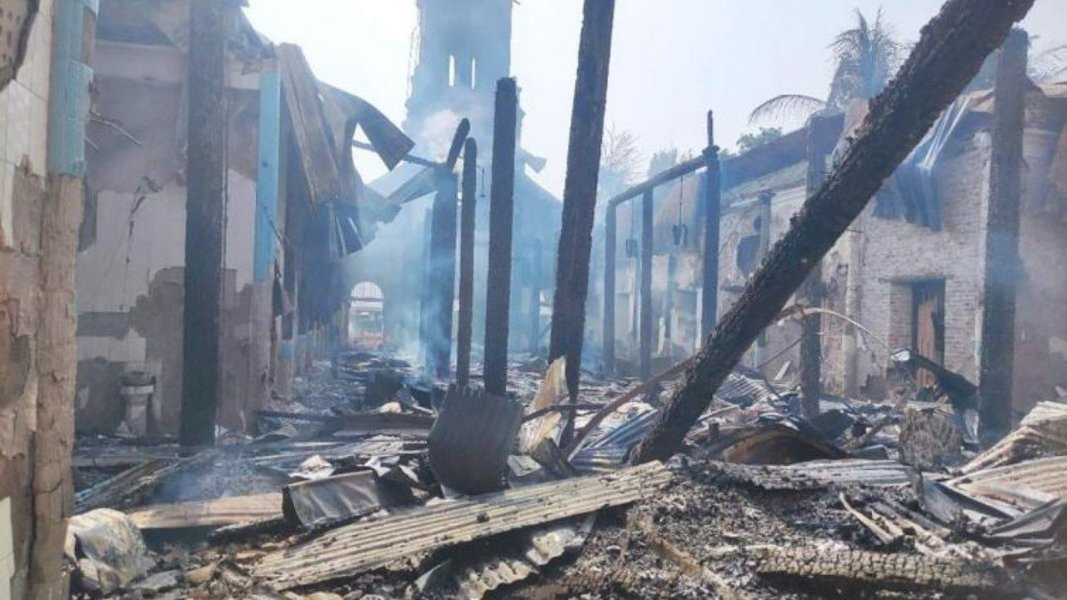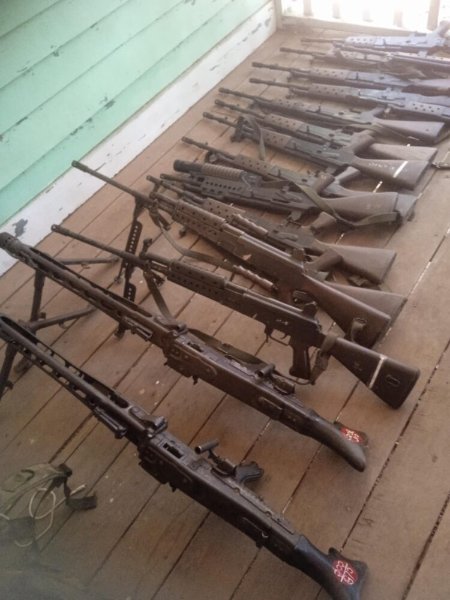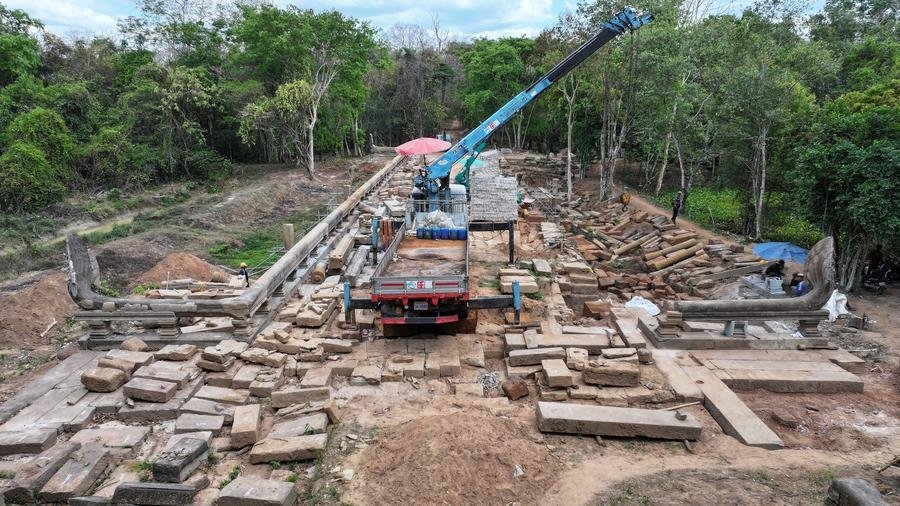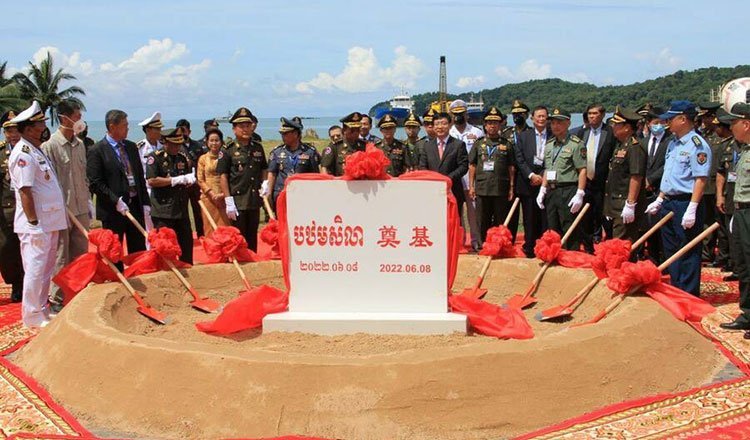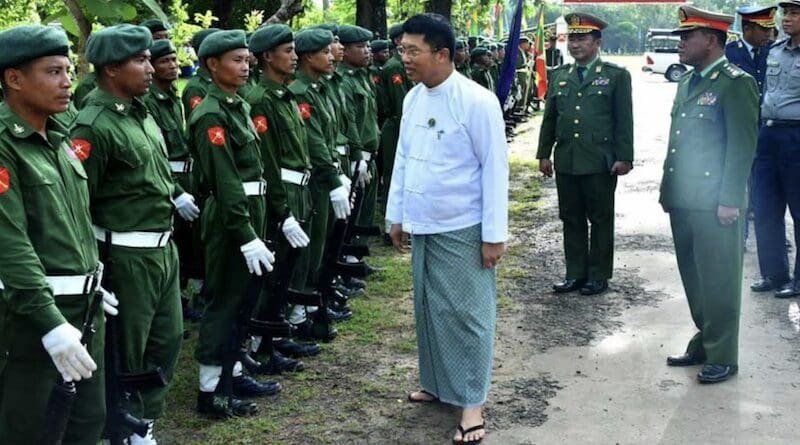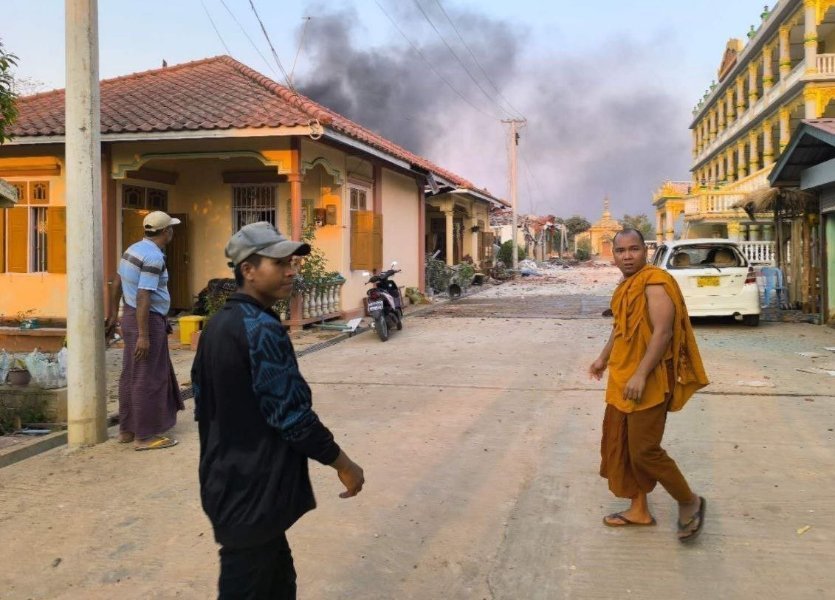-
Posts
15,829 -
Joined
-
Last visited
Content Type
Events
Forums
Downloads
Quizzes
Gallery
Blogs
Everything posted by geovalin
-
Before 1975 (Photo by Valleguidonensis / CC BY-SA 4.0) A long-awaited moment of renewal is taking shape in Cambodia’s capital, as the country’s Catholic community prepares to unveil the new St. Joseph Cathedral in Phnom Penh. Scheduled for consecration in November, the cathedral marks a powerful symbol of faith and perseverance nearly 50 years after the Khmer Rouge destroyed the original Notre Dame Cathedral in 1975. “We are proud that we can see the church rise again,” said Father Paul Chatsirey, the parish priest, in an interview with UCA News. Blending Khmer and Catholic architectural styles, the new cathedral has been under construction since 2021 and is set to be completed by July. It will accommodate up to 700 worshippers, making it the first church built in Cambodia since 1967. The $3 million project has been largely funded by Catholics from Cambodia, Thailand, and Vietnam, with significant contributions from the Paris Foreign Missions Society (MEP). A History of Faith and Persecution Catholicism has endured a turbulent history in Cambodia, dating back to the 17th century. While early missionaries were welcomed, conversions remained rare. A small but visible Catholic community emerged in the 18th century, primarily composed of Vietnamese refugees fleeing persecution. By 1970, Catholics in Cambodia numbered around 65,000, the majority of whom were of Vietnamese descent. However, growing nationalist hostility under General Lon Nol’s government forced tens of thousands to flee. The Khmer Rouge’s rise to power in 1975 proved catastrophic. Determined to erase symbols of foreign influence, the regime targeted Catholics, destroying churches and killing or driving out nearly half of Cambodia’s Catholic population. Among their acts of destruction was the demolition of the Notre Dame Cathedral, a prominent city landmark. “The trauma still lingers among Cambodian Catholics,” said historian Alain Forest, professor emeritus at Paris Diderot University. A New Beginning Decades after the fall of the Khmer Rouge, Cambodia’s Catholic community has slowly rebuilt itself. The government returned some church properties in the 1990s, and a seminary was reopened for worship. In 2019, plans for a new cathedral took shape, leading to the construction effort that is now nearing completion. The Catholic population in Cambodia remains small—estimated at around 20,000—but the new cathedral stands as a testament to the resilience of a community that has endured decades of hardship. “This is a reaffirmation in a country still overwhelmingly Theravada Buddhist,” Forest noted. “It’s also a way of showing the church’s continuity and resilience.” Until the grand opening in November, worshippers continue to gather in a temporary space, quietly awaiting the day when their faith will once again be enshrined in stone. -2025-03-25
-
The Irrawaddy, archives A Myanmar junta airstrike on a medical clinic in the country’s central Magway region has killed 11 civilians, including medical staff and children, in one of the latest brutal attacks by the military regime. The airstrike hit a clinic in Gangaw Township on Saturday morning, despite no ongoing battles in the area between junta forces and anti-regime militias, residents told Radio Free Asia (RFA). “We found 11 bodies. There were five children,” said a local resident, who requested anonymity for security reasons. “Everyone was a civilian.” Myanmar’s National Unity Government (NUG), the exiled administration opposing the junta, confirmed that among the dead were Dr Mya Soe Aung, 40, his wife, nurse Khaing Hnin Wai, 39, who was four months pregnant, and their five-year-old son. Eight other patients waiting for medical care also lost their lives. The couple had previously worked at Tin Thar District Hospital in Sagaing Region and were active participants in the Civil Disobedience Movement, a peaceful resistance campaign against the junta following its 2021 coup. After resigning from their government positions, they continued to provide medical aid in conflict-affected areas. Mass Arrests and Civilian Killings In a separate incident, residents reported that junta troops executed four civilians who had been arrested during mass raids on villages in Salin Township, around 186 kilometres south of Gangaw. Their bodies were found in an abandoned toilet pit at a local school. “The bodies were dumped inside an old toilet pit at Kya Pin’s school,” said a local administrative group member, speaking anonymously. “We cannot retrieve them for burial and have to cover the area with sand.” Elsewhere in Magway region, junta forces burned down more than 100 homes in Koke Ko Tan and Nay Pu Khan villages, killing a 55-year-old woman in the blaze. The attacks have displaced approximately 17,000 people, leaving them unable to return home. The junta has not responded to requests for comment. According to the Assistance Association for Political Prisoners, more than 6,400 civilians have been killed by the Myanmar military since the coup in 2021. This latest attack highlights the escalating brutality of the junta’s campaign against civilians, particularly those involved in the pro-democracy movement. -2025-03-25
-
Archives 2015 Japan has expressed deep scepticism over Myanmar’s military junta’s plans to hold national elections by January 2026, warning that such a move could worsen the country’s political crisis. During a parliamentary session on 21 March, Japanese Foreign Minister Takeshi Iwaya voiced “serious concern” about the proposed elections, stressing that no meaningful political progress had been made. His comments followed junta leader Senior General Min Aung Hlaing’s announcement of the election timeline during a visit to Belarus earlier this month. “The Japanese government is seriously concerned that holding national elections while there has been no political progress, such as the release of those detained, including Aung San Suu Kyi, and dialogue to break through the current situation, will only invite more resistance from the Myanmar people and make a peaceful resolution difficult,” Iwaya said in response to an opposition lawmaker’s question. Since seizing power in February 2021, Myanmar’s military has committed widespread human rights abuses, including extrajudicial killings, torture, and indiscriminate attacks on civilians. The junta has also jailed opposition politicians, criminalised their parties, and violently suppressed dissent, making free and fair elections impossible. Compounding concerns, much of Myanmar remains outside the junta’s control due to ongoing conflicts with ethnic armed groups and anti-regime forces. Last October, the junta attempted a nationwide census—ostensibly to prepare voter lists—but completed it in only 145 of the country’s 330 townships. Observers believe the census was less about voter registration and more about tracking opposition activists and conscripting recruits. Japan is not alone in its opposition. Malaysian Foreign Minister Mohamad Hasan recently stated that elections in Myanmar were “not a priority,” while United Nations human rights experts have urged member states to denounce the proposed vote as a “fraud.” While Japan’s criticism marks a significant step, analysts argue that Tokyo should take a firmer stance. Calls are growing for Japan to push other governments, including ASEAN states, South Korea, and India, to publicly reject the junta’s election plans and withhold any technical support for a process widely seen as neither free nor credible. -2025-03-25
-
xinhua Chinlone, Myanmar’s 1,500-year-old national sport, is taking steps toward global recognition as the country plans to submit it for UNESCO’s Intangible Cultural Heritage status in 2026. More than just a game, Chinlone blends skill, rhythm, and traditional music, making it both a sport and a cultural performance. "Preserving Chinlone is a national responsibility," said Aung Htet of the Myanmar Chinlone Federation, emphasising its role in promoting teamwork, discipline, and national pride. Originally played for royal entertainment, Chinlone became an officially recognised sport in 1953. Today, it remains a cherished part of Myanmar’s heritage, with local competitions, training programmes, and international tournaments keeping the tradition alive. For many, Chinlone is more than exercise—it fosters community, mental well-being, and even serves as a healthy alternative for young people. "Unlike other sports, Chinlone is low-cost, with no aggression or injury. It reflects the spirit of the Myanmar people—helping and supporting one another," said veteran player Khin Maung Win, 70, who has played for six decades. The sport’s popularity continues to grow, with Myanmar consistently winning medals since Chinlone was introduced to the Southeast Asian Games in 2013. Now, the country is pushing for wider recognition across Asia, with hopes of one day securing its place in the Olympics. As Myanmar prepares for its UNESCO bid, Chinlone players and advocates remain committed to preserving and promoting their beloved sport, ensuring that its legacy endures for generations to come. -2025-03-24
-
mizzima Myanmar’s military leader, Min Aung Hlaing, has acknowledged that international sanctions are significantly affecting the regime, marking a rare admission of economic strain since the 2021 coup. Speaking at the “Forum on Myanmar Beyond 2025” in Naypyidaw on 21 March, Min Aung Hlaing admitted that sanctions imposed by Western nations over human rights abuses were creating major difficulties. However, he insisted that the junta was finding ways to manage the crisis. “If sanctions are imposed, there will certainly be an impact,” he said. “It is true that there are difficulties, but we can manage them.” The United States and the European Union have sanctioned key junta officials, including Min Aung Hlaing himself, along with military-linked businesses. Now, further restrictions may follow, as the International Labour Organization (ILO) moves to block the regime’s revenue sources under Article 33. Despite the challenges, the junta leader remains focused on economic recovery, claiming Myanmar’s GDP stands between $60-70 billion, with a target of $81 billion in the next fiscal year. He proposed increasing exports to neighbouring countries, particularly in sectors such as footwear manufacturing, arguing that demand across Asia presents an opportunity. However, with sanctions tightening and international pressure mounting, Myanmar’s economic future remains uncertain. -2025-03-24
-
Cambodian gvt For the first time, conservationists have released Siamese crocodiles into Cambodia’s Virachey National Park, marking a major step in a decades-long effort to save the species from extinction. Once thought to be extinct in the wild, the Siamese crocodile has made a slow but steady comeback, thanks to conservation efforts led by the Fauna & Flora organisation. The reptiles, which can grow up to four metres long, were rediscovered in Cambodia’s remote Cardamom Mountains in 2000, sparking a nationwide conservation initiative. Today, Cambodia is at the heart of efforts to protect the species, with an estimated 400 individuals now living in the wild. Globally, their population is believed to have reached 1,000, though this remains just a fraction of their former range. A key part of the recovery plan is a breeding programme at Phnom Tamao Wildlife Rescue Centre. Here, eggs are incubated and hatchlings raised in controlled conditions, dramatically improving survival rates. Instead of the high mortality seen in the wild—where only a handful out of 50 survive—this programme ensures a nearly 100% success rate before release. Until now, reintroductions have focused on the Cardamom Mountains, where last year saw a record 60 hatchlings born in the wild. However, as the population grows, new habitats are needed. Virachey, with its remote, protected environment, offers a promising new home. Transporting the crocodiles was no easy feat. Over 18 hours, they were carried in bamboo baskets by car, motorbike, and boat to reach their destination. Each animal was fitted with a tiny acoustic transmitter beneath its skin, allowing researchers to track their movements and monitor their survival. Releasing them was a cautious process—first, a period of acclimatisation in a temporary enclosure, followed by a final check of tracking receivers. Then, the tape securing their jaws was removed, and one by one, they were lowered into the water. The conservation team hopes this release will mark the beginning of a thriving new population in Virachey. For local communities, who have played a key role in protecting the species, the return of these ancient reptiles symbolises hope for both biodiversity and the future of conservation in Cambodia. -2025-03-24
-
Cambodian gvt A three-year-and-six-month-old boy from Kratie province, northeast Cambodia, has tested positive for H5N1 avian influenza, the country's Ministry of Health confirmed on Sunday. This marks the third human case reported in Cambodia this year. The child was admitted to hospital in critical condition, suffering from fever, cough, and difficulty breathing. He is currently receiving intensive medical care from a specialist team. Health officials revealed that the boy’s family kept chickens, and several had died or fallen ill before the child’s infection. Some of the dead poultry had been consumed by the family, potentially exposing them to the virus. Authorities are now investigating the source of the infection and tracking individuals who may have been in contact with the patient to prevent further spread. Of the three H5N1 cases recorded in Cambodia this year, two have been fatal, with all patients having had direct exposure to sick or dead poultry. H5N1 primarily spreads among birds but can occasionally infect humans, causing severe respiratory symptoms. Since 2003, Cambodia has recorded 75 human cases, 45 of which have been fatal. Health officials continue to monitor the situation closely to prevent a wider outbreak. -2025-03-24
-
AA Fierce fighting between the Arakan Army (AA) and Myanmar’s military junta has intensified across three townships in Ayeyarwady Region, forcing thousands of civilians to flee, according to local reports. Junta Airstrikes and Clashes Spread This week, junta airstrikes and shelling triggered battles in Lemyethna, Yegyi, and Thabaung townships, near the border with Rakhine State. Airstrikes targeted villages in Lemyethna, while in Thabaung, clashes erupted near Artillery Battalion 334 as junta aircraft circled overhead. The military has imposed travel restrictions, shutting down key roads, including Pathein-Monywa and Gwa-Ngathaingchaung, since 18 March. Meanwhile, reports indicate junta troops retreating from village outposts in Thabaung. Humanitarian Crisis Worsens More than 3,000 residents from 10 villages in Thabaung and around 1,000 from Lemyethna have been displaced. With airstrikes ongoing, many civilians have fled to monasteries and urban centres for shelter. The AA, which launched an offensive against the military in November 2023, has gained control of 14 out of 17 Rakhine townships and Paletwa Township in Chin State. Recent battles in Nyaungdon have reportedly left over 120 junta troops dead, with AA forces capturing key positions in Padaung. Civilian Concerns Grow The fighting has raised fears for civilian safety, particularly as national matriculation exams take place. Reports suggest the junta is preparing to occupy schools after the exams, reinforcing its defensive positions. As clashes continue in Bago and Magwe regions, Myanmar’s conflict shows no signs of de-escalation, deepening the humanitarian crisis in affected areas. -2025-03-22
-
Myo Kyaw Soe/Xinhua Myanmar’s foreign trade has reached 25.79 billion U.S. dollars in the first 11 months of the 2024-25 fiscal year, accounting for 78% of its annual target of 33 billion dollars, according to state media reports. Pushing Towards Export Growth With less than a month left in the fiscal year, government agencies, private sector associations, and exporters are collaborating to meet the trade goal and double exports. A key step in this effort was a recent meeting of the National Export Strategy Government-Private Export Promotion Committee in Nay Pyi Taw, where officials reviewed the current National Export Strategy (2020-25) and began drafting the next phase (2026-30). Key Trade Sectors Myanmar’s primary exports include agricultural, animal, and marine products, as well as minerals, forest products, and manufactured goods. Its major trade partners include China, Thailand, Bangladesh, and India. With continued efforts to expand exports, Myanmar remains focused on achieving its trade objectives and strengthening its economic position in the region. -2025-03-22
-
As Cambodia strives towards its Vision 2050 goal of becoming a high-income nation, energy policy is emerging as a critical factor in securing long-term economic and environmental stability. Prime Minister Hun Manet faces the challenge of sustaining rapid growth while addressing climate change, and experts suggest nuclear power may hold the key. Balancing Growth and Sustainability With annual growth averaging 7.6% from 1995 to 2019, Cambodia has transformed through textiles, tourism, agriculture, and construction. However, achieving high-income status requires innovation beyond traditional industries. The World Bank’s 2024 report on middle-income nations highlights the importance of investment, infusion of expertise, and innovation to avoid stagnation. At the same time, Cambodia’s commitments under the Paris Climate Agreement demand net-zero carbon emissions and an increase in forest cover from 43% to 60% by 2050. Achieving these goals while maintaining economic growth presents a complex challenge. The Case for Nuclear Power Proponents argue that nuclear energy offers a solution to Cambodia’s dual challenge of industrial advancement and environmental responsibility. Nuclear power could provide stable, low-carbon electricity while enabling high-tech industries such as advanced manufacturing and AI. Additionally, nuclear innovations in direct air and ocean carbon capture could help reverse legacy emissions and combat ocean acidification. France, a global leader in nuclear energy, as well as Russia and China, have the expertise to assist Cambodia in developing nuclear infrastructure. China, already the primary investor in Cambodia’s hydropower sector, is actively developing thorium reactors, while Western tech giants like Amazon and Microsoft are investing in small modular reactors (SMRs). A Strategic Energy Policy Energy independence is increasingly seen as a pillar of national security and economic strength. Cambodia’s strategic non-alignment policy necessitates reducing reliance on any single nation, and diversifying its energy sources could reinforce its autonomy. Without a long-term energy strategy, the country risks economic and environmental setbacks. As the government considers its options, decisive action will be crucial. Vision 2050 demands bold leadership—one that embraces innovation to navigate the energy transition while safeguarding Cambodia’s future prosperity. -2025-03-22
-
Japan has announced a grant of 1.466 billion yen (approximately USD 11 million) to Cambodia, reinforcing its commitment to mine action and historical education. The funding, directed to the Cambodian Mine Action Centre (CMAC), will support two major projects aimed at strengthening demining capabilities and constructing the Techo Peace Museum. The agreement was formalised on 20 March 2025 in a signing ceremony attended by Cambodia’s Deputy Prime Minister Prak Sokhonn and Japan’s Ambassador Ueno Atsushi. Key Initiatives Boosting Mine Action Capabilities The bulk of the grant—1.166 billion yen (over USD 8.4 million)—will be used to enhance CMAC’s technical capacity. This includes acquiring essential demining equipment and vehicles, facilitating training programs for regional and international mine action experts. Techo Peace Museum Construction An additional 300 million yen (over USD 2 million) will go towards building the Techo Peace Museum and a training centre in Siem Reap’s Prasat Bakong district. The museum, designed to resemble an anti-personnel landmine, will cover 52 metres by 52 metres and stand 17 metres tall. Expected to be completed in three years, it aims to educate visitors on the devastating impact of landmines and promote peace. This funding highlights Japan’s long-standing support for Cambodia’s demining efforts, helping to create a safer and more peaceful future. -2025-03-22
-
Myanmar's pursuit of nuclear technology dates back to the early 2000s, with the recent junta confirming plans to build a small-scale nuclear power plant in the coming years. Despite claims that nuclear energy will address chronic electricity shortages, concerns persist that this may be a step toward nuclear weapons development. The following is a timeline of Myanmar’s nuclear ambitions: January 2002: Myanmar's military regime announces plans for a nuclear research reactor. May 2002: Russia’s Minatom agrees to assist in building a nuclear studies center in Magwe Division. July 2002: Russia and Myanmar sign an agreement for the center’s construction. April 2004: Concerns arise about North Korea’s possible nuclear assistance to Myanmar. February 2004: The regime denies nuclear weapon ambitions but asserts its right to peaceful nuclear facilities. September 2004: 400 Myanmar military officers travel to Russia, some to study nuclear engineering. August 2006: Myanmar's UN representative expresses opposition to nuclear weapons. May 2007: Russia’s Rosatom commits to building Myanmar’s nuclear facility. May 2007: The US condemns the project; Thailand expresses no concerns under IAEA supervision. November 2008: A Myanmar military delegation visits North Korea, arousing concerns about military nuclear aspirations. 2010: Major Sai Thein Win leaks evidence of Myanmar’s nuclear weapons development with North Korean support. July 2013: A senior military official is sanctioned by the US for illicit North Korean arms trade. 2016: Under Aung San Suu Kyi’s government, Myanmar signs the Comprehensive Nuclear Test Ban Treaty. 2018: Myanmar ratifies the Treaty on the Prohibition of Nuclear Weapons. September 2022: The junta and Russia’s Rosatom sign a roadmap for atomic energy cooperation. September 2022: Junta confirms plans for a nuclear power plant, establishing an information center in Yangon. February 2023: The nuclear information center officially opens in Yangon. March 2025: Min Aung Hlaing visits Moscow, signing agreements for a 110 MW small modular reactor near Naypyitaw, with potential expansion to 330 MW. This timeline highlights Myanmar’s deepening nuclear ties with Russia, raising questions about the true intent of its nuclear ambitions. -2025-03-21
-
Nippon Myanmar remains gripped by economic collapse and violent conflict four years after the military seized power in a coup. With inflation soaring, energy shortages worsening, and a brutal civil war raging, the country’s future appears increasingly uncertain. A Nation in Economic Freefall Before the coup in February 2021, Myanmar was on a path toward economic recovery following the COVID-19 pandemic. However, the military takeover derailed progress, leading to severe financial instability. The national currency, the kyat, has plummeted in value, dropping from 1,500 kyat per US dollar before the coup to 7,000 kyat by mid-2024. Inflation has skyrocketed, doubling the cost of goods and sending fuel prices soaring to five times their pre-coup levels. Foreign reserves have been depleted, forcing authorities to impose strict restrictions on US dollar withdrawals and imports. The government has limited import licenses to businesses in the Thilawa Special Economic Zone, causing supply shortages across industries. Japanese firms, once major investors in Myanmar, are withdrawing, and the Japanese Chamber of Commerce in Myanmar has seen its membership shrink dramatically. Compounding the crisis, electricity shortages persist, with power only available for eight hours every two days. Despite raising electricity rates by 2.5 times, the junta has failed to improve supply, forcing factories and businesses to rely on costly fuel generators, further undermining Myanmar’s economic prospects. A War with No End in Sight Meanwhile, fighting between the military and the People’s Defence Force (PDF), the armed wing of the opposition National Unity Government, has intensified. Once in control, the military now faces heavy territorial losses and diminishing troop numbers, prompting a desperate move in June 2024: conscription. Under this policy, men aged 18 to 45 are forcibly drafted, with reports indicating that even 14- and 15-year-olds are being taken from the streets, given alcohol and cigarettes to appear older, and sent directly into battle. The violence has displaced thousands, leaving entire communities homeless. Schools remain closed in conflict zones, with teachers targeted in attacks. The lack of education threatens the future of Myanmar’s youth, deepening the country’s long-term instability. A Bleak Outlook for Myanmar Diplomatically isolated, Myanmar saw its last major foreign connection severed when Japan decided not to replace its outgoing ambassador in September 2024. Once considered Asia’s “last frontier” of opportunity, the country is now described as a “lost frontier.” With no clear path back to democracy, Myanmar’s future remains in jeopardy, and its people continue to bear the brunt of this prolonged crisis. -2025-03-21
-
KT/Chor Sukuntea The National Bank of Cambodia (NBC) is intensifying efforts to promote the Cambodian riel (KHR) and reduce reliance on the US dollar, aiming to strengthen the country’s monetary sovereignty. While the dollar has dominated Cambodia’s economy since the 1990s, NBC is working to shift towards a more self-sufficient financial system through policy incentives, digital innovation, and financial education. To encourage riel usage, NBC has launched financial literacy programs in schools, introduced reserve requirements favouring riel deposits, and mandated pricing of goods and services in the local currency. Businesses and government employees are also increasingly required to receive salaries in riel, ensuring its steady circulation. Another key initiative is the development of an interbank market to facilitate riel transactions among financial institutions. NBC’s liquidity-providing collateralised operations (LPCO) in riel enable banks to access funds more easily, making the currency more attractive. Additionally, interest rate stability remains a priority, with NBC maintaining competitive rates on riel deposits and loans to build confidence among borrowers and savers. A major breakthrough in digital transactions is the Bakong payment system, a blockchain-based platform developed by NBC. By integrating banks and mobile wallets, Bakong enables seamless riel transactions and promotes financial inclusion. It also connects Cambodia to regional payment networks, facilitating cross-border transactions in riel. The government has further reinforced the riel’s role by issuing riel-denominated bonds, providing a secure investment avenue and strengthening financial markets. Despite these measures, full de-dollarisation remains challenging due to strong public trust in the US dollar, its historical stability, and its dominance in foreign trade and large business transactions. NBC continues to intervene in the foreign exchange market to stabilise the riel against the dollar while introducing market-based monetary policies to maintain price stability. However, external factors such as global interest rate trends and Cambodia’s reliance on external financing present ongoing challenges. At an annual conference in February, NBC Governor Chea Serey reaffirmed the banking sector’s resilience, citing strong deposit growth and high liquidity levels. She highlighted the modernisation of Cambodia’s payment systems and the growing adoption of digital transactions as key drivers in promoting the riel. Financial experts agree that increasing riel usage is crucial for Cambodia’s economic stability. Economist Hong Vannak emphasised that greater reliance on the riel would protect the country from exchange rate fluctuations and inflation while strengthening investor confidence and public trust in the financial system. While full de-dollarisation will take time, NBC’s strategic policies are gradually shifting Cambodia towards a more independent and resilient economy. By embracing the riel, businesses, financial institutions, and the public can collectively contribute to a stronger financial future for Cambodia. -2025-03-21
- 1 reply
-
- 1
-

-
ssca The much-anticipated Techo International Airport (TIA) is on track to open this July, a milestone that is expected to significantly boost Cambodia’s tourism and air connectivity, said Minister of Tourism Huot Hak yesterday. Speaking during a site visit to the nearly completed airport, Hak highlighted its importance in enhancing travel convenience for international visitors. “After this new international airport is officially inaugurated in July, we expect more international tourists to visit Cambodia,” he stated. TIA, a $1.5 billion project now 95 percent complete, is being developed by the Cambodia Airport Investment Co Ltd, a joint venture between the Royal Government of Cambodia and Overseas Cambodian Investment Corporation. The 4F-rated facility, ranked ninth globally, will be capable of handling large aircraft such as the Airbus A380 and Boeing 747-800, allowing for long-haul transcontinental flights. Located roughly 20 kilometres south of Phnom Penh, the new airport spans 2,600 hectares across Kandal and Takeo provinces. Designed to improve air travel efficiency, it is expected to be a game-changer for Cambodia’s aviation and tourism industries. Chhay Sivlin, President of the Cambodia Association of Travel Agents, noted that the enhanced airport infrastructure and increased flight connectivity would be pivotal in attracting more visitors. “Improving airport facilities and expanding air links have greatly contributed to making Cambodia a more accessible destination,” she said. Cambodia’s aviation sector saw impressive growth in 2024, with the country’s three international airports handling a record 6.2 million passengers, according to the State Secretariat of Civil Aviation. At present, 31 national and international airlines operate flights to and from Cambodia, including 131 daily flights at Phnom Penh International Airport, 52 at Siem Reap Angkor International Airport, and six at Sihanoukville International Airport. With TIA set to become a major hub, Cambodia aims to welcome 7.5 million international tourists by 2025, further cementing its reputation as a prime travel destination in the region. -2025-03-21
-
Myanmar has requested an increased electricity supply from Laos to ease power shortages in the border town of Tachileik, which has been struggling with rationing since Thailand cut energy exports in February. According to the Tachileik News Agency, officials have asked Laos to boost monthly electricity supply from 13 to over 20 megawatts, citing growing demand, particularly from hotels and entertainment venues. The town, located opposite Thailand’s Mae Sai district, has been experiencing prolonged outages, with power currently distributed in limited time slots. The shortages stem from Thailand’s decision on 5 February to halt electricity and fuel exports to both Tachileik and Myawaddy, another border town opposite Thailand’s Mae Sot district. The move was intended to pressure Karen rebel forces into cracking down on Chinese-run scam operations in the region. Before the restrictions, Tachileik relied on 50 megawatts per month from Thailand and 30 megawatts from Laos. The recent cut has left the town struggling to meet demand, especially as temperatures rise during the dry season. If Laos agrees to increase supply, it could offer temporary relief, but long-term energy stability for Tachileik remains uncertain. 20-03-25
-
Myanmar’s military leader, Min Aung Hlaing, has returned from Moscow with a diplomatic boost, securing new agreements with Russia as his forces struggle against an intensifying resistance. The visit, his fourth since seizing power in 2021, marked his first official invitation from President Vladimir Putin. The talks resulted in Myanmar opening consulates in St Petersburg and Novosibirsk, as well as a deal for a small nuclear power plant. However, it was military cooperation that dominated discussions. Facing heavy territorial losses to pro-democracy forces, Myanmar’s junta reportedly sought further arms and specialised drone technology from Russia. With drones reshaping modern warfare, the regime hopes enhanced aerial capabilities will help turn the tide against the growing armed resistance. Since October 2023, a coordinated offensive by ethnic groups and pro-democracy fighters has seen the junta lose significant ground, with reports suggesting it now controls less than half of Myanmar. Yet, while the resistance has made major gains, there are concerns that Russian military aid could stall their momentum. Zachary Abuza, a professor at the US National War College, described the visit as a “diplomatic win” for Hlaing, highlighting the potential for licensed drone production in Myanmar. “The opposition has taken heavy casualties, and their offensives have slowed. Licensed drone production is essential for the cash-strapped junta,” he said. Beyond military aid, Russia has also assisted Myanmar in establishing a satellite imagery analysis centre—ostensibly for space research, but with potential intelligence applications for the junta. While China remains Myanmar’s primary ally, experts believe Hlaing is playing Moscow and Beijing against each other to maximise support. However, China is likely to see Russian backing as complementing its own efforts to stabilise the junta rather than as a competing influence. As Myanmar’s war drags on, the junta’s reliance on foreign military aid raises concerns of escalating violence. With Russian weapons and technology now in play, the future of the conflict remains uncertain—but for those on the ground, the stakes have never been higher. 20-03-25
-
Cambodian Senate President and former prime minister Hun Sen has praised Donald Trump’s decision to shut down Voice of America (VOA) and Radio Free Asia (RFA), two US-funded broadcasters that have long operated as pillars of American public diplomacy. In a Facebook post, Hun Sen commended Trump’s move, stating: “We should highly appreciate President Donald Trump for his courage to lead the world in combating fake news.” His remarks align with Cambodia’s broader stance against Western-backed media, which the government has frequently accused of bias. Trump’s executive order, signed on Friday, seeks to scale back the US Agency for Global Media (USAGM), the parent organisation of VOA and RFA. The decision effectively weakens two outlets that have played a key role in broadcasting independent news to global audiences, particularly in regions with restricted press freedom. Michael Abramowitz, Director of VOA, condemned the measure, arguing that it would significantly undermine efforts to provide fact-based reporting to those “living under tyranny.” He warned that dismantling these platforms would erode America’s ability to promote press freedom and democratic values worldwide. For Cambodia, the shutdown of these media outlets could have profound implications. The government has intensified its crackdown on independent journalism in recent years, with many local and international reporters facing harassment, legal action, or expulsion. VOA and RFA have been among the few remaining sources of critical reporting on the Cambodian government. Human rights advocates fear that Trump’s move could embolden governments with poor press freedom records, further restricting access to independent news in countries like Cambodia. As the debate continues, the future of free media in the region remains increasingly uncertain. 20-03-25
-
DC-Cam Borei O’Svay Senchey, a district once marked by war and genocide, is undergoing a remarkable transformation into a beacon of peace and development. Partnering with the Documentation Centre of Cambodia (DC-Cam), local authorities are working to preserve the region’s history while shaping a brighter future. The initiative, based in Cambodia’s Stung Treng province, is dedicated to honouring the legacy of King Father Norodom Sihanouk and Queen Mother Norodom Monineath. Youk Chhang, Executive Director of DC-Cam, emphasised the significance of Borei O’Svay Senchey in remembering Sihanouk’s efforts to bring peace to Cambodia. “It is a legacy that defines the late King Father’s struggle to end conflict and seek peace exactly 55 years ago,” said Chhang. “It also honours the historical role of the Queen Mother, who contributed to restoring the Second Kingdom and maintaining stability for all Cambodians.” The first phase of the Borei O’Svay Senchey Community Development Project has already made a tangible impact by preserving historical sites and improving the quality of life for residents. Now, the second phase seeks to drive socio-economic growth by boosting tourism, raising awareness of the region’s history, and ensuring environmental sustainability. The ambitious plans include restoring and improving infrastructure, introducing boats for public transport, and developing a boating dock. A masterplan for the district is set to be published, alongside the creation of a community history and guidebook. Local officials are fully backing the project, which also envisions a riverside walkway, fitness trails, a community farm, trade centre, rest houses, and a historical park. Additional elements such as sculptures, safety structures along the riverbank, and community signboards will further enhance the area. Borei O’Svay Senchey’s unique island-river landscape, rich biodiversity, and cultural heritage offer significant potential for tourism. Situated along Cambodia’s border with Laos, the district is set to emerge as a key attraction for both local and international visitors. With historical preservation and economic revitalisation at its core, this transformation is more than just a development project—it is a testament to Cambodia’s resilience and enduring pursuit of peace. 20-03-25
-
The Myanmar junta has burned down St. Patrick’s Cathedral in Banmaw, Kachin State, in its latest assault on religious sites since seizing power in 2021. The cathedral was set ablaze on March 16 during military operations in the area, just a day before the feast of St. Patrick, to whom the church is dedicated. The Diocesan offices, priest’s house, and high school had already been torched on February 26. St. Patrick’s is one of several churches targeted in the conflict. Earlier in March, St. Michael’s Catholic Church pastoral centre in Banmaw was destroyed, while airstrikes damaged the Sacred Heart Church in Chin State in February. The civil war, triggered by the 2021 coup, has seen Myanmar’s military face growing resistance from ethnic armed groups and pro-democracy forces. The junta’s tactics—airstrikes, mass executions, and the burning of villages and religious sites—have drawn condemnation from human rights groups. However, some ethnic militias within the resistance are also under scrutiny. Groups like the Ta’ang National Liberation Army (TNLA) and the Myanmar National Democratic Alliance Army (MNDAA) have been accused of forced conscription and violent crackdowns on civilians, sparking unrest in their territories. Amid escalating violence, the junta promised elections on March 10, but with large swathes of the country under rebel control, the feasibility of such a vote remains uncertain. Since the coup, nearly 6,400 civilians have been killed, over 28,700 arrested, and millions displaced, deepening Myanmar’s humanitarian crisis. 19-03-25
-
- 1
-

-
Myanmar’s military junta has suffered significant casualties in intense fighting with People’s Defense Forces (PDF) in Katha Township, northern Sagaing Region, over the weekend. Clashes erupted when around 200 junta troops from the Katha-based Light Infantry Battalion advanced into resistance-held areas. Fighting raged for more than a day, with continuous artillery strikes from both sides. Resistance forces report that around 40 junta soldiers were killed, along with two PDF fighters. A further 29 regime troops were captured or surrendered. Viral footage circulating online shows detained soldiers claiming they were forcibly recruited to fight. While The Irrawaddy has been unable to independently verify casualty figures, the battle highlights the junta’s ongoing struggles to retain control over key regions. Katha town remains a military stronghold, with hundreds of junta troops, police, and Pyu Saw Htee militias deployed. Nearby, in Indaw Township, resistance forces have seized most of the territory, except for a strategic hill where junta troops have entrenched themselves. The hill overlooks a crucial transport route, and while rebels have cut off reinforcements, junta air and artillery strikes prevent a full assault. With fighting still erupting around Katha, Myanmar’s resistance forces continue to challenge the junta’s grip on Sagaing Region, one of the strongholds of armed opposition since the 2021 coup. 19-03-25
-
ANA via Xinhua Cambodian archaeologists are restoring the eastern causeway of Beng Mealea, a 12th-century temple within the UNESCO-listed Angkor Archaeological Park, as part of a conservation effort funded by China’s Lancang-Mekong Cooperation (LMC) Special Fund. The restoration project, which began in July 2024 and is set to finish by August 2025, aims to revitalise the damaged causeway of the temple, which shares architectural similarities with the renowned Angkor Wat. According to Boeut Sopak, an engineer with the APSARA National Authority (ANA), the team has repaired pillars, beams, Naga balustrades, and collapsed sections of the structure. Work is ongoing to reinstall Naga heads and replace eroded soil with laterite, a material that enhances stability and protects against water damage. Beyond safeguarding Cambodia’s Khmer heritage, the project has also created jobs for local communities, fostering greater involvement in historical preservation. Situated in Siem Reap province, Beng Mealea is one of 91 ancient temples spread across the 401-square-kilometre Angkor Archaeological Park, Cambodia’s top tourist destination. This restoration underscores China’s growing role in heritage conservation within Southeast Asia, reflecting both regional cooperation and geopolitical influence. 19 - 03 - 25
-
Cambodia is set to inaugurate the first phase of its newly renovated Ream naval base on April 2, a site upgraded with Chinese funding that has sparked geopolitical tensions. Located on Cambodia’s southern coast, the strategically positioned base has drawn scrutiny from Washington, which fears it could bolster Beijing’s influence near the disputed South China Sea. While Cambodian officials insist the facility is not exclusively for any foreign power, US officials remain wary of China’s growing military footprint in Southeast Asia. Major General Thong Solimo confirmed that a Japanese warship would be the first to dock at the upgraded base following its official opening. Cambodia’s Defence Ministry also stated that vessels from other nations, including possibly the United States, may gain access under certain conditions. The renovation, funded by Beijing since 2022, is another sign of China’s deepening ties with Cambodia. Under former leader Hun Sen, Chinese investment surged, with billions funnelled into infrastructure and defence projects. This growing alignment has strained US-Cambodian relations, though recent military engagements suggest Washington is keen to rebuild ties. In December 2024, a US warship docked in Cambodia for the first time in eight years, marking a potential thaw in relations. February also saw a high-level US military visit aimed at strengthening bilateral defence cooperation. Despite these diplomatic moves, Cambodia is set to receive two warships from China, further cementing its reliance on Beijing for defence upgrades. While Phnom Penh maintains its neutral stance, the unfolding developments at Ream highlight Cambodia’s delicate balancing act in an increasingly contested region. 19 - 03 - 25
-
RFA Myanmar’s military has forcibly conscripted more than 70 young men from a single town in Ayeyarwady region, residents reported on Monday, as the junta continues to bolster its depleted ranks through mandatory military service. Troops from the 534th Infantry Battalion rounded up the men—some as young as 17—on 14 March in Mawlamyinegyun township, sending them to military depots in Yangon for training. Locals say fear of forced recruitment has driven many young people to flee their villages or avoid sleeping at home. Myanmar’s junta reintroduced compulsory military service last April, requiring men aged 18 to 35 and women aged 18 to 27 to serve for at least two years. The move comes as the military struggles to contain an armed resistance movement that has inflicted heavy losses on its forces. In recent months, resistance groups have targeted junta-aligned officials responsible for enforcing the draft. Since February 2024, at least 110 village and township administrators have been assassinated for their role in recruitment efforts, according to data compiled by RFA. Many of those conscripted have been detained at gunpoint, with reports of torture and execution for those attempting to escape. Despite the growing risks, young people across Myanmar continue to seek ways to evade military service, either by fleeing the country or going into hiding. Junta officials have not responded to inquiries about the latest round of forced recruitment. However, as opposition to the draft escalates, Myanmar’s military faces deepening resistance both on the battlefield and among its own population. 18-03-2025
-
(Photo: Palaung State Liberation Front) Myanmar’s military has killed at least 40 civilians, including Buddhist monks and children, in a series of airstrikes in the country’s north, insurgents reported on Monday. The strikes are part of the junta’s escalating efforts to crush resistance as civil conflict rages on. The attack targeted the Sein Yadanar monastery in Nawnghkio, Shan State, on Sunday, killing 13 people, including six monks—four of them young novices. Seventeen others were wounded, 13 of them monks, according to Lway Yay Oo, spokesperson for the Ta’ang National Liberation Army (TNLA). She accused the military of deliberately attacking civilians and religious sites. Myanmar has been in turmoil since the 2021 coup that ousted Aung San Suu Kyi’s elected government. With resistance forces growing, the military has increasingly relied on airpower to weaken insurgent strongholds. Rights groups say these airstrikes frequently target civilian areas, aiming to erode support for rebel forces. The TNLA claims the junta is trying to pressure them into peace talks being brokered by China, which has strong economic ties to Myanmar. However, the group did not comment on whether negotiations would be considered. Meanwhile, Myanmar faces a deepening humanitarian crisis, with 3.5 million people displaced and food aid agencies struggling with funding shortages. The junta, which rarely comments on battlefield developments, has not responded to inquiries about the latest attack. As the military prepares for an election by January, which it hopes will strengthen its grip on power, its brutal campaign against civilians risks further international condemnation. 18-03-25




